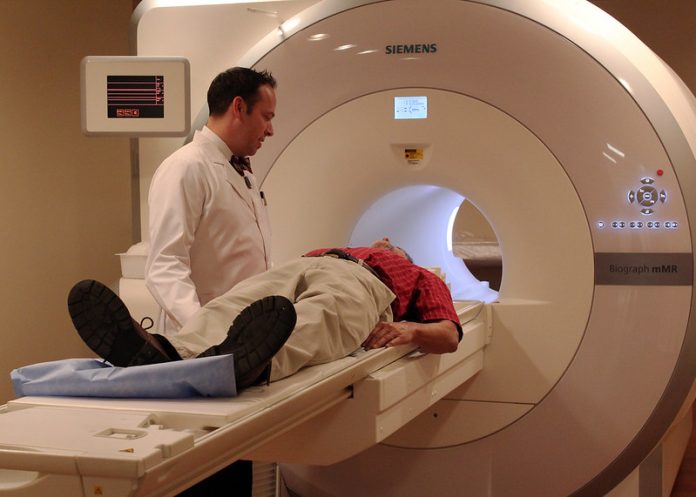Are you wondering if an MRI scan is the right medical procedure for you? It’s a crucial decision to make – no one likes to have exams and tests. But it can be even more daunting when making a decision about something that involves radiation. To guide you, we’ll take a deeper dive into what an MRI scan is, what its uses are and who should consider getting one so that you can handle your decision-making process confidently.
What is an MRI Scan and How Does it Work
The MRI uses a powerful magnetic field to acquire detailed images of your body. It is most commonly used to examine soft tissue, such as the spinal cord, muscles, brain and joints. MRI is a painless procedure, and it only can take up to 45 minutes to complete depending on the area being scanned. Moreover, it does not involve radiation, which makes it safer than other types of scans.
During the MRI scan, you’ll lie down on a table that slips into a big cylinder. The machine is like a tunnel with a strong magnetic field that sends radio waves into your body. It helps create images of the organs, tissues and bones inside you. Your doctor will examine these images to help diagnose any medical problems. Remember to consistently talk to your doctor before you get an MRI scan. They can explain more about the process and what it will check for.
Uses of an MRI Scan
You might be wondering why you require to go for an MRI scan. This imaging detects several medical problems. It can also be utilised to monitor the progress of existing ailments or provide information about tissue structure. Common uses for an MRI scan include diagnosing:
- Aneurysms of cerebral vessels
- Brain injury from trauma
- Stroke
- Tumours
- Disorders of the eye and inner ear
- Spinal cord disorders
- Multiple sclerosis
- Heart disease, including cardiac anatomy and function
- Some types of cancer
The type of scan you’ll receive will depend on the reason for your MRI. Discussing the procedure with your doctor ahead of time ensures the greatest care. An MRI is a safe and effective way to diagnose many medical conditions, so if your doctor recommends an MRI scan, it’s best to follow their advice.
Who Should Consider Getting an MRI Scan
Like any other medical procedure, MRI scans aren’t for everyone. So who should consider getting an MRI? Generally, your doctor will refer you for an MRI scan if they believe it’s necessary. If you have a symptom, injury, physical exam, X-ray, or CT scan, or you may need extra testing.
Here are the ones who should consider getting an MRI scan:
- People with Persistent Pain: If you’re experiencing chronic pain, particularly in your back or joints, an MRI can help to identify what’s causing the issue.
- People With Heart Disease: An MRI can help diagnose and monitor heart disease. It can also give pictures to aid clinicians in patient treatment decisions.
- People After Accidents: An MRI can help diagnose injuries after an accident. It’s particularly useful for diagnosing soft tissue damage, such as ligament or tendon tears.
- Person With Suspected Infections: In some cases, an MRI is used to detect infections that might not show up on other scans. For example, it can identify spinal epidural abscesses, which are collections of pus in the spine.
Benefits of Having an MRI Scan
As you know, what the MRI is, what it uses and who can use it. It’s a scan that can give doctors an internal look at your body to diagnose and treat many diseases, from broken bones to cancer. But what are the specific benefits of having an MRI? Below are the benefits of having an MRI scan:
Noninvasive
MRIs are noninvasive diagnostic tools that don’t require surgery. It doesn’t emit radiation, and it is even safer than X-rays and CT scans.
High Definition Images
An MRI produces incredibly detailed images that provide an extremely accurate diagnosis. It’s the best imaging technology currently available. It’s great for examining ligaments and tendons.
Early Diagnosis
MRI scans can detect subtle changes in organs or tissue that other tests may miss. It helps doctors diagnose certain conditions earlier, allowing for more effective treatment options.
Accurate Diagnosis
As mentioned above, MRI scans are incredibly detailed. It allows doctors to diagnose conditions more accurately than any other imaging technology.
Conclusion
MRI scans are crucial for diagnosing and treating many medical diseases. They’re noninvasive, provide high-definition images, and can detect subtle changes in organs or tissue that other tests may miss. If your doctor recommends an MRI scan, it’s best to follow their advice. If you have any inquiries about the procedure, don’t hesitate to ask your doctor or medical team. They can explain the process in more detail and answer any concerns. Good luck!
























